In duo roles, Boulez spotlighted, magnificently, with CSO
For all his acclaim on the podium, Pierre Boulez would still consider himself a composer who conducts rather than a conductor who composes. The final two programs of the Chicago Symphony Orchestra’s tribute to Boulez at 85 are belatedly exploring Boulez’s music with one of his works featured on this week’s CSO program, and three more at Sunday afternoon’s MusicNOW event.
Like most, if not all Boulez works, his Livre pour cordes has been relentlessly revised and retooled. In 1946, the 24-year-old composer first cast the “book for strings” as six separate quartet movements, to be played in any order. Boulez drastically revised the work in 1968 as a bipartite work for string orchestra, and then again in 1988 as a single movement.
Boulez’s music had the reputation of being coldly intellectual and forbidding—algorithms set by the former mathematics scholar to music. But, as shown Thursday night at Symphony Center, his Livre pour cordes is intriguing and surprisingly expressive music on its own austere terms.
In 11 minutes the dynamics rarely rise above mezzoforte, yet the nonlinear progression offers an array of fast-passing, elliptical moments, lyrical solo fragments among them. Boulez’s legacy as a composer remains a point of contention, but the astringent luminosity of Livre pour cordes is undeniably compelling, and the CSO strings gave their conductor laureate refined and precise advocacy.
Boulez’s uber-objectivist stance can sometimes seem inimical to the music—I’ve never warmed to his carbon-dated Mahler—but his long partnership with the CSO is so rich and rewarding for both that it seems to allow for a greater warm and flexibility in the French conductor’s style.
Stravinsky’s Firebird has been a Boulez touchstone in Chicago, memorably recorded with the CSO in 1992 for Deutsche Grammophon, and Thursday night’s performance of the complete ballet brought an even deeper, multi-hued experience.
Granted, the opening depiction of the Enchanted Garden was rather fleet and literal, but once flutist Mathieu Dufour stole in with the Firebird’s theme, the performance began to unfold in all its iridescent splendor. The benefit of presenting the entire ballet rather than just the greatest-hits suites is that one can encounter the audacity and brilliance of Stravinsky’s original scoring as well as the innumerable beauties of the non-excerpted passages and transitions.
Boulez downplayed the bombast of Kashchei’s Infernal Dance effectively while still making audience members jump with the whipbrack power of those sudden chords. Even by their standard, the CSO strings were golden and gorgeous in the Princesses’ Round and Berceuse, and Dufour, oboist Eugene Izotov, clarinetist John Bruce Yeh, and concertmaster Robert Chen all made glorious contributions. Only the dismal horn playing of Dale Clevenger was a blot on an otherwise evocative, beautifully colored performance.
The evening’s centerpiece, Bartok’s Concerto for Two Pianos and Percussion, proved less successful than the flanking works. The unorthodox concerto has not been heard downtown for 24 years—-amazingly so for an orchestra with such a Bartok lineage as the CSO (Sir Georg Solti was a page-turner for Bartok at the second performance in Budapest). While there are ample showy moments, Bartok’s work is, in many ways, an anti-concerto, more of a vehicle to explore unusual timbres and instrumental colors with the pair of percussionists equal protagonists with the two keyboard soloists.
Still, the music does require a certain bravura thrust from the pianists and Thursday night’s performance, while polished and immaculately balanced, was far too bland and lacking in fire. CSO percussionists Cynthia Yeh and Vadim Karpinos did their part, yet the low-key, lightweight playing of Tamara Stefanovich and Pierre-Laurent Aimard shorted Bartok’s explosive energy and brilliance. And why was the headlined Aimard—one of the finest and most celebrated pianists of our day—taking the secundo part in deference to the virtually unknown Stefanovich?
The program will be repeated 1:30 p.m. Friday and 8 p.m. Saturday. 312-294-3000; www.cso.org.
Posted in Performances
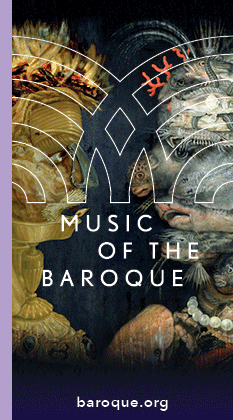
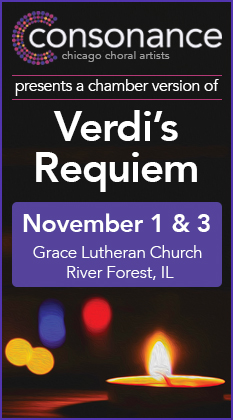
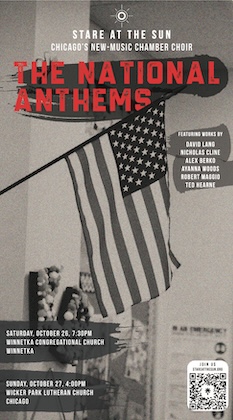
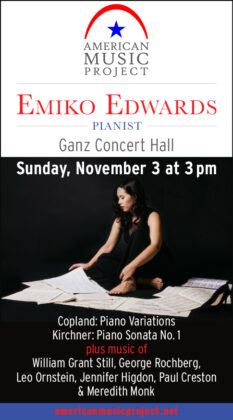
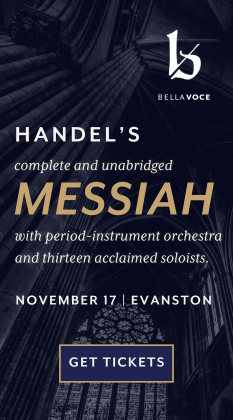
Posted Jan 23, 2010 at 4:41 pm by Mark Eckel
I too was struck by Dale Clevenger’s poor performance, and John von Rhein in the Tribune noticed it too. I’ve always liked Clevenger, a link to the days of Herseth, Jacobs, Still, Peck, and Aitay in the principal chairs. (Their replacements are just fine, by the way, in my opinion.) But the fluffed notes (occupational hazard for the horn, but still)were definitely there, and intonation problems were obvious, most unfortunately in the crucial first statement of the final theme of the Firebird. With a younger player, you figure it’s just a bad night, but just as with an aging athlete, with a veteran like Clevenger you wonder if there’s a decline beginning. In any event, I hope Clevenger is okay, not ailing, or having trouble at home, etc.
Posted Jan 24, 2010 at 7:06 am by Brian Richardson
I’ve been a big Dale Clevenger fan for decades, and did not hear this performance, so I’m alarmed by these comments coming from a very respected music critic like Lawrence Johnson. As a point of comparison, I’ve viewed the Berlin Phil performances via their Digital Concert Hall over the past year, and cannot recall a single obvious horn clam, especially from their two principal players. I also hope everything is ok with Clevenger’s health, because at this elite level of orchestral playing, note accuracy and intonation are pretty much a fundamental expectation.
Posted Jan 25, 2010 at 8:50 am by Richard Kane
I attended the Saturday performance and there were horn problems too, at exactly the point noted by Mark Eckel – the entrance of the final theme. Marred an otherwise excellent concert.
Posted Jan 30, 2010 at 12:12 pm by Carl
Surely, Clevenger is fine. He is an icon in the music community, and evidently, he’s also human. The greatest professionals in any field have their bad days/ their bad weeks. Our favorite athletes have bad games. We don’t second guess their health or home-life after a bad game or two (or three). Years of proven success – live and recorded – have been a gift from Clevenger. In his comments above, Brian mentions that note accuracy is a fundamental expectation, and that he’s watched the Berlin broadcasts. Free point shots are also a fundamental expectation, but mistakes happen – even to the greatest in their profession. The broadcast audio from Berlin is likely edited or patched from several concerts, choosing the best moments from each. (Unless they are live broadcasts).
Just my perspective…
Posted Feb 01, 2010 at 12:58 am by John
I heard this concert at Carnegie hall tonight, and the results were consistent with the review here. As for Dale Clevenger, he missed notes in pretty much every exposed part in the concert, his intonation was very poor, and his tone seemed somewhat unsteady and nonresonant. I have heard him play with pitch problems and sound problems in the past, but not with the addition of all of the fluffs (and the range of these solos wasn’t particularly high, either.
Posted Feb 02, 2010 at 12:29 pm by David
I heard both of the CSO concerts this past weekend at Carnegie Hall, and I have heard every single CSO concert at Carnegie for the past 8 or 9 years. I started to notice a decline in Dale Clevenger’s playing about 4 or 5 years ago. Each year when I hear him play, his inaccuracy keeps increasing, to the point this year, where I felt that his playing completely destroyed the performance of The Firebird. If Clevenger was having a bad week, or if this were a temporary problem with his chops, Boulez and the brass section would have agreed to let the Associate Principal horn, Daniel Gingrich, who is a fantastic player, play principal horn in the Firebird. Saturday night, everything seemed fine, though.